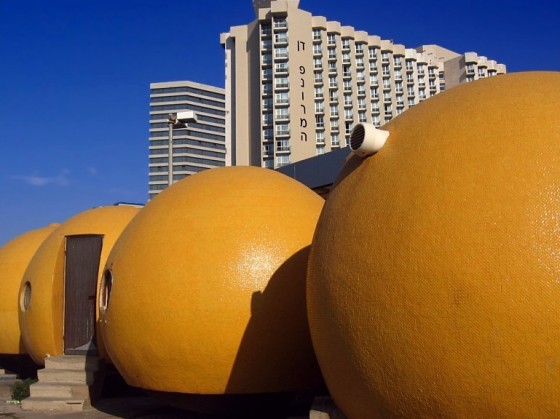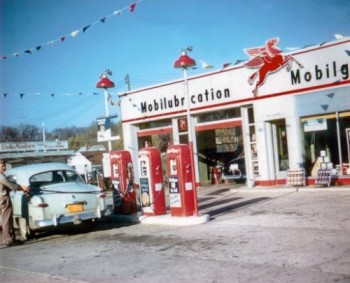 OECD lays down the law: Israeli gas stations still causing pollution, despite efforts to improve. Above: seaside gas station in Tel Aviv.
OECD lays down the law: Israeli gas stations still causing pollution, despite efforts to improve. Above: seaside gas station in Tel Aviv.
Petroleum and the refined products made from it –– gasoline and diesel fuel –– are not the only main polluters to our environment. Gas stations, including those sparkling new ones being erected in Israel, are now being seen as one of the major polluters to Israel’s soil and ground water, and are now being charged by the Environment Ministry as failing to divulge information on the amount of soil and ground water pollution being caused by leakage of petroleum based products into the earth.
According to the ministry’s investigation in the Jerusalem Post 93% of the gas stations built before 1997 were found to be contaminated, while at a third of the gas stations, the groundwater had been polluted as well.
Petroleum based fuels have been the subject of environmental studies for some time. Even though newer gas station, like those of the Dor Alon Energy Company, have tried to clean up their energy act by building more modern and less polluting gas stations, but the pollution from older ones is still in the groundwater and soil under which many these stations still stand.
The air and ground pollution issue in a small country like Israel has reached a stage that new rules issued by the international Organization for Economic Cooperation and Development (OECD) have been issued regarding pollution caused by both industrial and private factors, including that by automobiles and public transport. In order for Israel to maintain a membership in this prestigious organization, anti pollution standards will have to be maintained; including that caused by the petroleum industry.
Israel’s military is already in the process to trying to be less polluting on army bases, as well as in the field. This is proving to be not so easy a task as the IDF’s carbon and ecological “footprint” on Israel’s environment is often said to be one of the biggest contributors to environmental damage.
 US gas station in the Good Old Days
US gas station in the Good Old Days
Automobile service stations got their start in America during the 1930s and by the time of the 1950s were already a large network that offered cheap fuel, full service, and even a variety of auto repairs and maintenance.
Israel’s equivalent came about much later; but also offered repairs, oil changes, and other types of services. It was the result of these “services” that much of the pollution came about, due to dirty oil from oil changes often finding its way into sewage drains and sometimes right into the ground.
Make it electric?
Israel’s “evolution” into more modern self-service type of gas or petrol stations came about even later, compared to North America or even most European countries. Like the country’s communications networks (telephone service, internet networks, etc), Israel’s gas stations have come a long way; and Dor Alon will soon be offering battery exchange services for the Better Place electric car network.
With the inclusion of “service” for electric vehicles, the environmental upgrading of even ordinary gas stations should follow suit as cars will also use alternative fuels like hydrogen and liquefied natural gas. These new energy innovations may finally enable gas stations to clean up their environment act.
More articles on fossil fuel and other pollution issues in Israel:
Israel’s Army Makes Advances in Green, But Victory Comes First
Israel Can do More Than Clean Tech to Reduce Regional Carbon Footprint
Israel’s Polluters Face New OECD Rules
Image via trekearth




